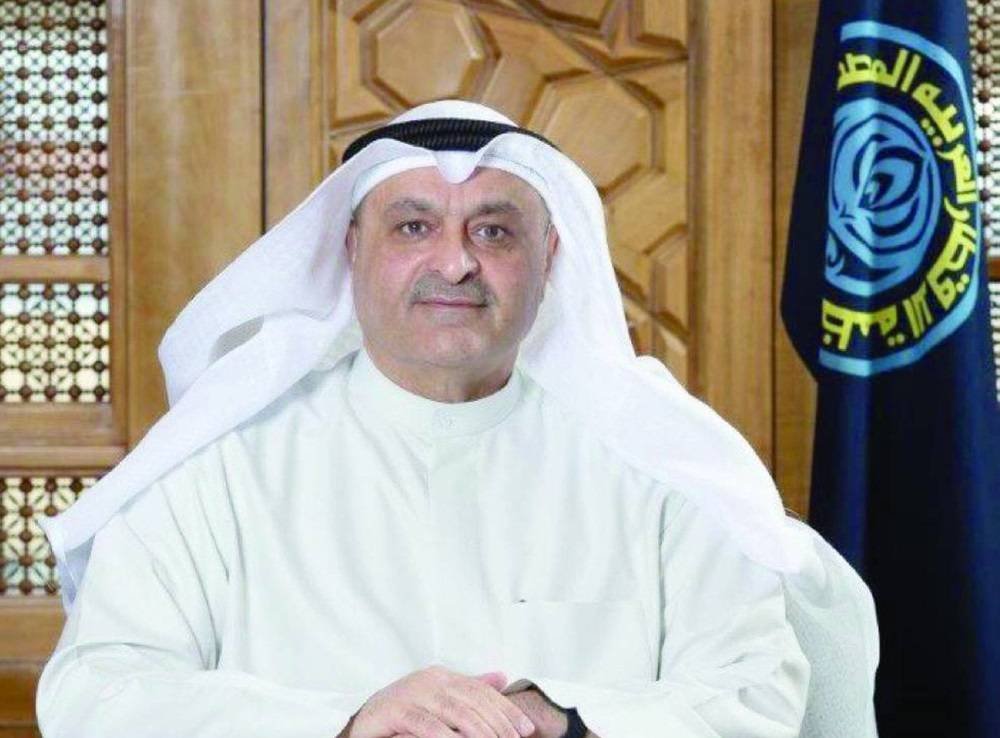Jamal Issa Al Rouhani, secretary-general of the Organization of Arab Petroleum Exporting Countries (OAPEC), has predicted that the world will become pristine if oil-producing countries listen to the demands of environmental activists and stop producing gas and oil.
He said there would be widespread power outages around the world, businesses would be forced to close and global trade would come to a halt.
Without fuel, supply chains that mainly rely on truck, rail and sea transport would come to a halt, he told Asharq Al-Awsat newspaper.
Moreover, this would lead to the collapse of global health systems that rely on oil and gas to run hospitals and transport patients, which would extend to the production of medicines, equipment and medical supplies, he added.
Eventually, he warned, the world would fall into a severe global recession.
But he said that given the bleak outlook, this scenario is highly unlikely to come to fruition.
“It must be emphasized that it is impossible to imagine a global economy that is not driven by its main engine, the oil and gas industry,” he asserted.
Al Ruhani said oil and gas are the main foundation of economic ties between countries and generate millions of jobs around the world.
He noted, however, that there are growing challenges in the development of the oil industry and in the coordination of energy policies among OAPEC member states. He cited unified efforts to ensure oil supplies to the market on fair and reasonable terms and to provide appropriate conditions for capital and investors in the oil industry among member states.
This is one of OAPEC’s main goals, he said, adding that one of the obstacles it faces is the misleading call to cut oil and gas investments linked to the environment and climate change.
He said there is a strong emphasis on linking a zero-emissions environment with reduced oil and gas consumption. This call ignores the fact that reducing emissions through oil and gas production and clean technologies will contribute to reaching the goal of net-zero emissions by 2050.
Al-Rouhani added that OAPEC has indeed begun to do this in recent years as part of its objectives to strengthen sustainable energy systems and contribute to global climate change efforts.
OAPEC was founded in Beirut in 1968 by Saudi Arabia, Libya and Kuwait. Based in Kuwait, its establishment was seen as an Arab achievement in the difficult circumstances following the 1967 war.
Energy and Emissions
Al Rouhani stressed that the oil and gas industry has played a major role in the growth of the global economy in recent decades.
He said the industry would certainly continue to play its role, despite pressure from some countries that were initially supportive.
He stressed that OAPEC has begun to respond to global trends on reducing carbon emissions.
He pointed to continued investment, innovation and development in clean technologies such as carbon capture and storage.
However, Al Rouhani said demand for oil and gas remains large in the global energy mix, despite an increasing share of renewable energy, particularly solar and wind power.
Oil Market
Regarding the decline in investment in the oil sector after some countries switched to clean energy, Al Rouhani acknowledged that the decline in production and exploration in particular would lead to slower growth in global reserves.
This could affect the overall supply to meet growing demand, resulting in higher energy prices, he predicted.
He revealed that investment in oil exploration and production will reach about $397.6 billion in 2023. This means there is a gap of more than 17% in the investment needed to meet global oil demand by 2045, estimated at $480 billion per year by OPEC.
Therefore, he called for increased investment in the entire oil industry to avoid endangering global energy security, increasing inflation and, as a result, slowing the transition to a clean and sustainable energy system.
Arab Sanctuary
Regarding the role that Arab countries, and Saudi Arabia in particular, play in ensuring oil supplies to the global energy market, he said the country plays a key role in that end, given its vast reserves and its share of global production.
He stressed that Saudi Arabia is constantly striving to ensure security of oil supplies and provide reliable sources of energy, especially when it comes to economic development, while confronting the challenges of climate change.
This is exemplified by Saudi Arabia’s pioneering efforts in establishing OPEC+ and ensuring its success. He also noted the precautionary measures the group has taken to support stability and balance in global oil markets through additional voluntary production cuts.
He added that such measures were necessary to achieve sustainable growth in the global economy.
He also noted that Saudi Arabia is working with its G20 partners to achieve shared interests and maintain fair costs for all players in the energy market, including producers, investors and consumers. These efforts have come into focus during the COVID-19 pandemic.



